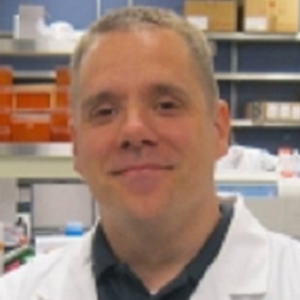Dr. Jeremy Johnson is the leader of the Pre-clinical Development Pharmacokinetic Core of a campus-wide center for Drug Discovery and Development (UICentre). One of UICentre’s objectives is to characterize the pharmacokinetics of investigational agents and determine how this knowledge can be used for medicinal chemistry strategies, approaches to dosing, vehicles, or other components that will help successfully translate small molecules to a clinical setting. Dr. Johnson has experience in evaluating pre-clinical and clinical compounds including flavonoids, xanthones, and terpenoids for several diseases. His research focuses experience is focused on evaluating the small molecules for disrupting drug targets (e.g. androgen receptor), performing animal models, and evaluation of pharmacokinetics of small molecules in vitro (e.g., microsomes, plasma), in vivo (mice and rats) and in human clinical trials. As an example of his experience in evaluating xanthones they have identified gartanin to disrupt androgen receptor function and report on the disruption of kinase activity by α-mangostin. As an example of his experience in pre-clinical pharmacokinetic analysis, his group was i) the first to report a strategy to enhance the pharmacokinetic properties of a flavonoid-like structure, resveratrol, in mice via inhibition of glucuronidation; ii) first to report on the pharmacokinetic profile of α-mangostin in mice; and iii) first to identify four metabolites of α-mangostin in mice. In terms of human clinical research, he is responsible for evaluating the pharmacokinetic properties of resveratrol in two different clinical trials. Dr. Johnson has a keen interest in this project as he has been actively collaborating with the Co-Is on the characterization of anti-cancer agents in targeting nuclear receptors in hormone responsive cancers. In this mentored SURF program their objective is to provide a translational research experience to promising undergraduate students who are considering graduate school as their next step in career development.
Our laboratory is focused on the use of natural and or semi-synthetic compounds for the prevention and treatment of prostate, breast, and colon cancer. In regard to prostate and breast cancer we are evaluating the targeted degradation of androgen receptor for cancer control. In regard to colon cancer we are evaluating natural products for the activation of the endoplasmic reticulum stress response including Sestrin-2 for cancer

